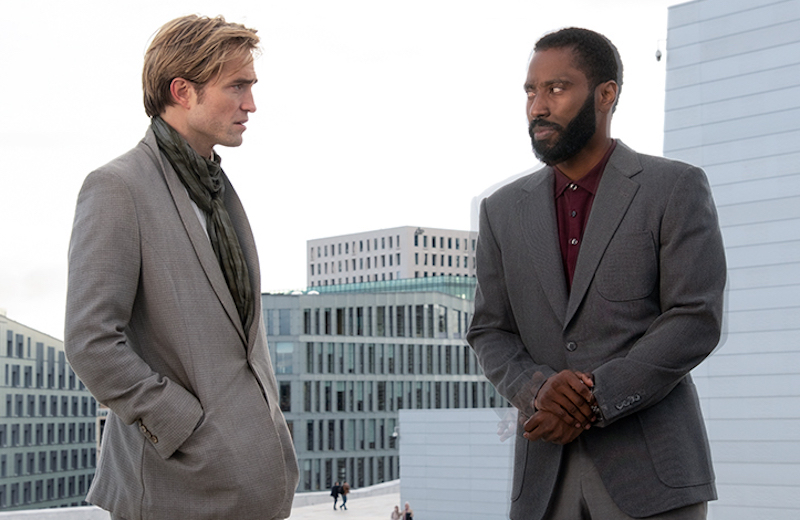
Christopher Nolan’s latest film Tenet is an intricately plotted science fiction thriller, in the vein of 2010’s Inception and 2014’s Interstellar. The eleventh film in the visionary director’s filmography, Tenet is a testament to the endlessly imaginative and unique mind of its auteur. However, unlike Nolan’s previous ground-breaking forays into the science fiction genre, his newest film is sadly devoid of three-dimensional characters, making the film’s high stakes very difficult to care about.
The film’s plot involves a CIA agent, played by John David Washington, who is never referred to by name, (but is credited as the “Protagonist”), who is recruited by a mysterious organization in a mission to save the world – that’s as much plot detail I can divulge without getting completely side-tracked by its many intricacies. As with Inception, which incorporated the concept of dreams within dreams, and Interstellar, which investigated the concept of relativity, Tenet has a tricky scientific concept which plays an integral role in the plot: time reversal symmetry.
The A-List talent available to the director, including Robert Pattinson, Elizabeth Debicki, Michael Caine and Kenneth Branagh, makes it all the more unfortunate that their acting abilities are wasted in a film in which the plot and visual effects take complete precedence over everything else, including characterisation.
Robert Pattinson, who recently gave a stunning performance in The Lighthouse, is given perhaps the most interesting role in the film, playing the Protagonist’s handler – though the mysterious nature of his character means that Pattinson unfortunately has very little to work with.
Elsewhere, fans of BBC’s 2015 miniseries The Night Manager will definitely take issue with Debicki’s casting, as her role in the film is strongly reminiscent of the role she played in the series – in both narratives, she’s the wife of a manipulative, abusive arms dealer.
Kenneth Branagh is cast as the Russian villain, an archetype he previously played in 2014’s Jack Ryan: Shadow Recruit. While an actor of Branagh’s range and experience shouldn’t worry about being cast in similar roles, one wonders if there is the risk of a younger actress, such as Debicki, falling into a typecast.
The musical score is the first of Nolan films since 2008’s The Dark Knight not to be composed by Hans Zimmer, who had already committed to composing Denis Villeneuve’s sci-fi thriller, Dune. Instead, Ludwig Goransson, whose claim to fame is his breakout gig scoring the 2018 blockbuster Black Panther, does an adequate job but struggles to summon any real emotion. His score is lacklustre in comparison to Zimmer’s pulse-pounding, emotionally resonant compositions in epics such as Inception, Dunkirk, and Interstellar. We can only hope that Zimmer’s work on Dune makes up for his absence from this project.
On the whole, while Tenet is as intellectually challenging as a viewer would expect from a Christopher Nolan film, it seems, this time around, that he has put too much work into challenging the audience and not enough into the personalities of the characters.
Although this is one of Nolan’s weaker efforts, it’s still more than worthy of a recommendation courtesy of its incredibly innovative visual effects, which significantly help the viewer in understanding the film’s central concept. The work can also be commended for its well-choreographed action scenes and the consistently brilliant work of cinematographer Hoyte van Hoytema. While fun is in shorter supply in this film than it is elsewhere in Nolan’s filmography, he has nonetheless delivered a distinctive, visually sumptuous film-going experience in a way that only he can.






